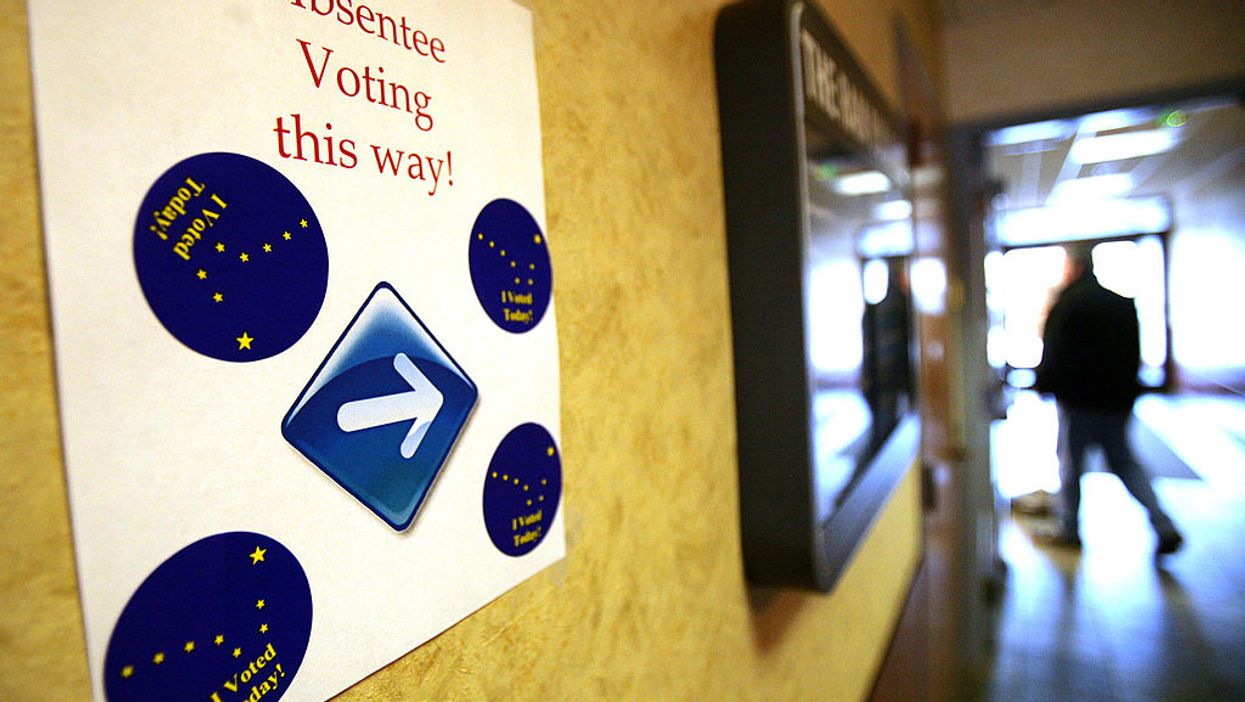The Supreme Court for the first time on Thursday came down on the side of relaxing a burden on voting during the coronavirus pandemic.
But the justices made clear their decision — which will allow Rhode Islanders to vote absentee without a witness this fall — was a purposeful exception to their reasoning in an unbroken string of seven rulings since the spring, each of which has kept the exercise of democracy difficult in the face of a public health crisis.
Unlike the other cases, where a state was fighting easements to its rules, Rhode Island officials had already agreed to settle a lawsuit by relaxing its unusually strict mail-in requirements for the September primary and general election. That left the Republican Party, which sued to reverse the deal on the grounds it would promote election cheating, no legal leg to stand on, the court said.
Unlike "similar cases where a state defends its own law, here the state election officials support the challenged decree, and no state official has expressed opposition," the court's unsigned order said. "Under these circumstances, the applicants lack a cognizable interest in the state's ability to enforce its duly enacted laws."
Three of the most conservative justices — Clarence Thomas, Samuel Alito and Neil Gorsuch — said they would have granted the GOP's appeal.
Rhode Island requires voters mailing their ballots to sign them in front of two witnesses or a notary public, verification requirements matched in difficulty by only a handful of other states.
Gov. Gina Raimondo suspended the requirement for the June presidential primary, saying it would wrongly make people risk infection with Covid-19 in order to vote. When her fellow Democrats in charge of the General Assembly deadlocked on a bill keeping the suspension going for the year, a suit to make it so was filed in federal court by Common Cause, the ACLU and the League of Women Voters.
State officials agreed not to enforce the witness requirement in a consent decree finalized two weeks ago. That was when the GOP went to court, echoing President Trump's arguments about permissive mail voting being an invitation to fraud and asserting the change should have been produced by legislators instead of a lawsuit.
"Voters should never have to choose between their health and their right to vote. Democracy was upheld by today's decision," said the head of LWV in Rhode Island, Jane Koster. "Witness and notary requirements do nothing to improve the security of our elections, and now voters can cast their ballots free from the burden of fulfilling these requirements during a deadly pandemic."
One state with an almost identical mail-in verification rule is Alabama. In one of the earlier election cases this year, the Supreme Court did what the state government in Montgomery wanted and refused to consider an appeal arguing those witness requirements were excessively burdensome.
The other rulings from the high court have preserved the timetable for the Wisconsin primary during the initial peak of the pandemic, upheld strict excuse requirements for casting a mail vote in Texas, delayed the restoration of felon voting rights in Florida and preserved signature gathering rules for ballot measures in Oregon, Utah and Ohio.




















Trump & Hegseth gave Mark Kelly a huge 2028 gift